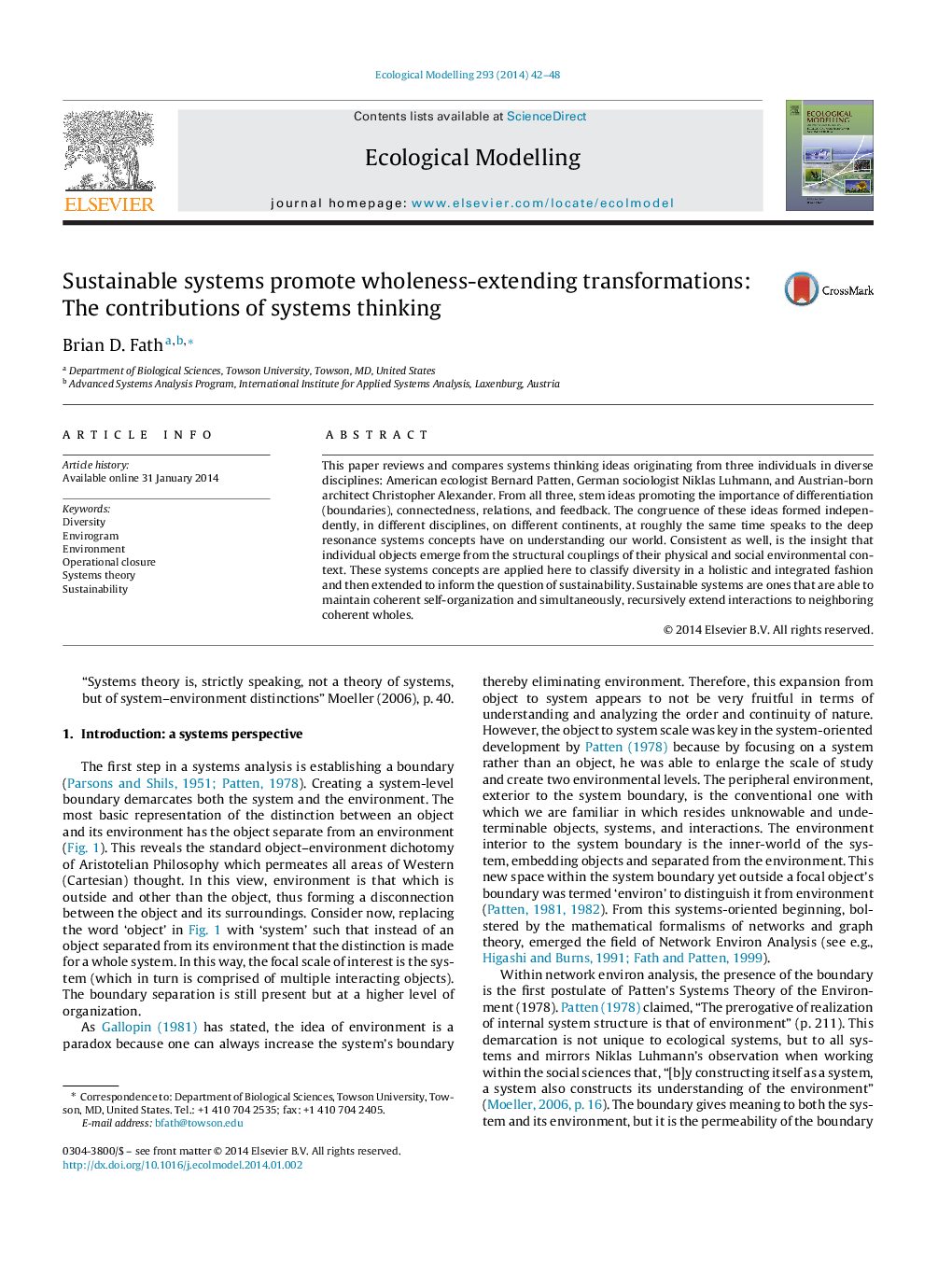| Article ID | Journal | Published Year | Pages | File Type |
|---|---|---|---|---|
| 4375790 | Ecological Modelling | 2014 | 7 Pages |
•Species are historically contingent constructs that emerge from the structural couplings of physical and environmental systems.•Autocatalysis maintains structured gradients that allow for the continuation of organized system function.•Sustainability is a product of system configuration which promotes wholeness-extending transformations.
This paper reviews and compares systems thinking ideas originating from three individuals in diverse disciplines: American ecologist Bernard Patten, German sociologist Niklas Luhmann, and Austrian-born architect Christopher Alexander. From all three, stem ideas promoting the importance of differentiation (boundaries), connectedness, relations, and feedback. The congruence of these ideas formed independently, in different disciplines, on different continents, at roughly the same time speaks to the deep resonance systems concepts have on understanding our world. Consistent as well, is the insight that individual objects emerge from the structural couplings of their physical and social environmental context. These systems concepts are applied here to classify diversity in a holistic and integrated fashion and then extended to inform the question of sustainability. Sustainable systems are ones that are able to maintain coherent self-organization and simultaneously, recursively extend interactions to neighboring coherent wholes.
